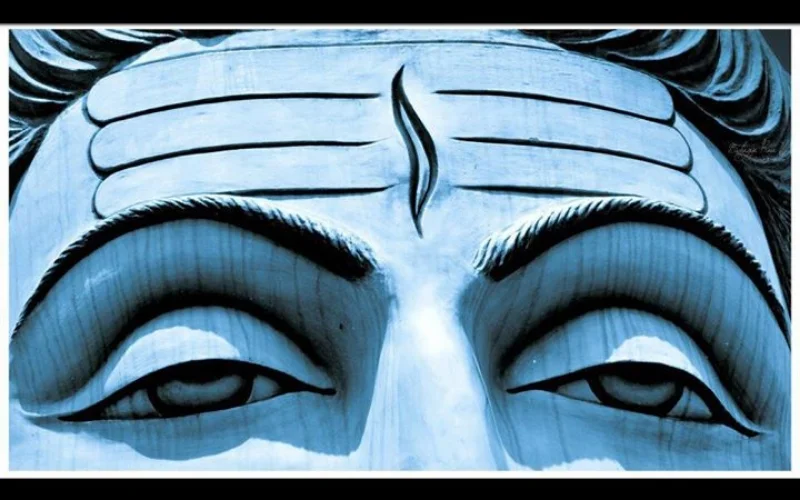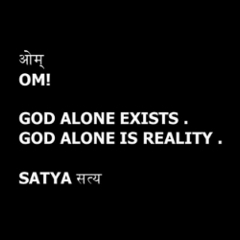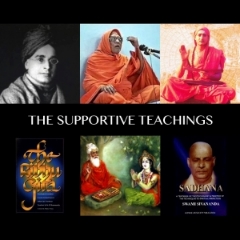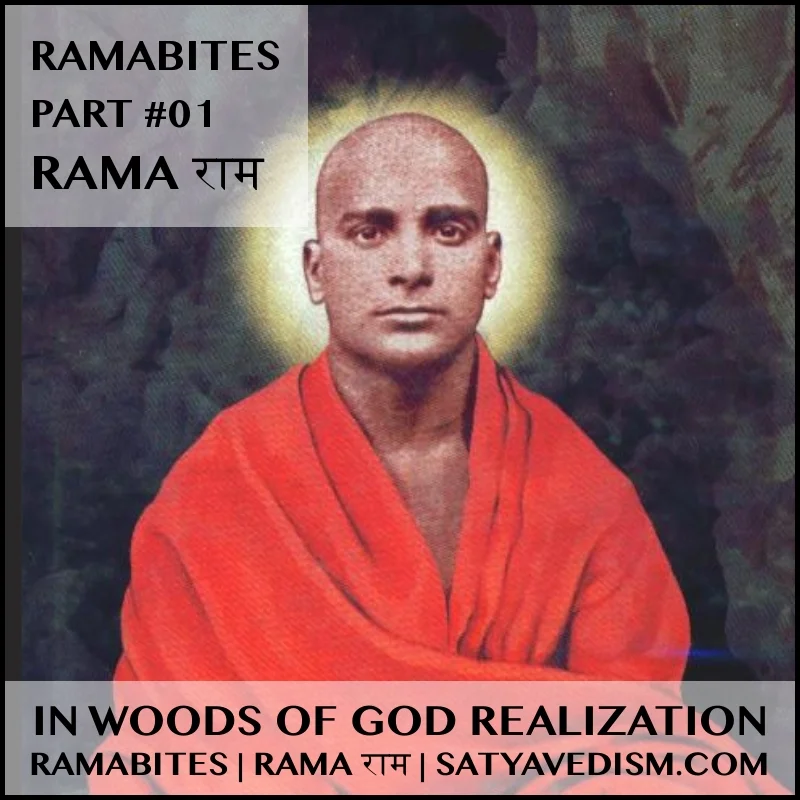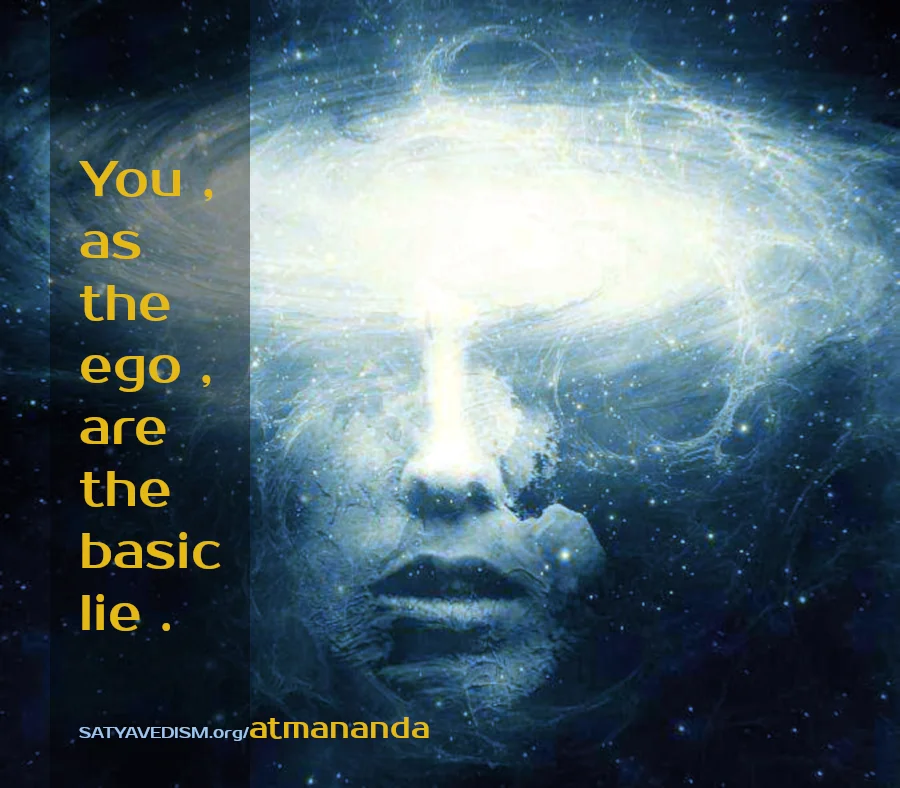CHANDOGYA UPANISAD | 7.24.1 | AMOETD
| | homeCHANDOGYA UPANISAD | 7.24.1 | SRI ADI SANKARACARYA
Yatra nanyat pasyati nanyac-chrnoti nanyad-vijanati sa bhuma , atha yatranyat pasyati anyac-chrnoti anyadvijanati tad-alpam ; yo vai bhuma tad-amrtam , atha yadalpam tan-martyam , sa , bhagavah , kasmin pratisthita iti , sve mahimni , yadi va na mahimniti . || 7.24.1 ||
1 . Wherein one sees nothing else , hears nothing else and understands nothing else , — that is the Infinite ; wherein one sees something else , hears something else , and understands something else , — that is Finite . That which is Infinite is immortal ; that which is Finite is mortal . " Revered one , wherein does that rest ? " — " In Its own majesty , or not in majesty . "
|| BHASYA || : It is explained what the distinguishing character of the infinite is : — Wherein , — in which Infinite , as an entity , the seer does not see anything else—which is to be seen by means of other sense organs , as distinct from the seer oneself ; — similarly one hears nothing else ; — inasmuch as Name and Form alone are meant to be included here , the text mentions only the apprehensions of those alone — in the shape of seeing and hearing ; and the others being mentioned as merely illustratives ; — but reflection should be understood to be included here by some such expression as " when one reflects upon nothing else " as understanding is almost invariably preceded by reflection : — similarly , when one understands nothing else . — That which has this character is the Infinite .
OBJECTION : Is it the absence of the seeing of other well-known things that is denied in reference to the Infinite , by the expressions " one sees nothing else " and the rest ? Or is it meant that " one sees oneself , nothing else " ( That is , does the sentence mean merely the denial of the seeing of other well-known things ? Or the affirmative of the person seeing oneself , and nothing else ? ) .
" What difference would that make ? "
If what is asserted is only the absence of the seeing of other things , then the sense comes to be that the Infinite is something entirely different in character from all notions involving Duality . — If , on the other hand , what is meant by the denial of the seeing of other is that One sees oneself , — then it would mean the admission of the distinction between action ( seeing ) , acting agent ( seer ) and the result ( perception ) .
" What would be the harm , if this were so admitted ? "
The harm would be that there would be no cessation of the Cycle of Births and Deaths ; as this Cycle consists in the said distinction between Action , Actor and its Result . — But under the Doctrine of the Unity of the Self , the distinction between Action , Actor and Result is entirely different in character from that involved in the Cycle of Births and Deaths .
Not so ; if the Unity of the Self is held to be free from all distinction and diversity , the idea of the distinction between the Action of seeing etc , the Actor and the Result is merely verbal—Even under the view that what is meant is the negation of the seeing of anything else , — the very distinctions involved in the terms " wherein " and " sees nothing else " would be meaningless .
In the ordinary world , it is found that in an empty room , when it is said that " one sees no one else " , it is not meant that the person's own self , or the pillars and other things are not seen ( it means only that no other person is seen ) . So would it be in the case in question also .
Not so ; inasmuch as absolute unity has been taught in the text " That thou art " , — there is no possibility of any such distinction as between the container and the contained ( as is involved in the qualifications " wherein " and " nothing else " ) . Further , under Discourse VI , it has been established that Being alone is " True , one , without a second " ; — and in accordance with the following texts , the perception of self by itself is not possible —
( a ) " Invisible , — not self etc " ( Taitti . Upa 2 . 7 . 1 . ) ;
( b ) " Its form is not within the range of vision . " ( Katha Upa . 6 . 9 . ) ;
( c ) " By what could one know the knower ? " ( Brhada . Upa . II . iv . 14 . )
In that case , the qualifying term " wherein " becomes meaningless .
No ; it is in reference to distinctions based upon Nescience ( ignorance ) . In the text " Being , one , without a second " , is found that though Being is really incapable of numerical qualification ( as expressed by the term " one " ) , yet it is spoken of in that way in reference to these notions of " truth " , " unity " and " secondless " as have been dealt with in the context in which the said text ( Being , one , secondless ) occurs .
In the same manner , though the Infinite is one only , yet the qualification of " wherein " has been applied to it ( in reference to what is spoken of in the context ) . — Further , when the text applies to the Infinite the qualification involved in the phrase " sees nothing else " ( which implies distinction ) , what it does is to make a reference to the " seeing of others " during the ( normal ) state of ignorance , and then to deny that seeing of others in regard to the Infinite . — Thus , the upshot of the whole context is that the process of births and deaths is not applicable to the Infinite ( which is beyond the reach of that process ) .
On the other hand , when , in the sphere of ignorance ( Nescience ) , one sees something else , through something else , — that is Finite ; that is , exists only so long as the ignorance lasts ; just as things perceived during a dream lasts only till waking , only so long as the dream lasts . — For that same reason , it is mortal , — perishable , — like the thing perceived in a dream . Contrary to all this is the Infinite , which is immortal ; — the pronoun " tat " refers to " amrta " ( Hence , in the Neuter form ) .
Therefore , Narada said — " This Infinite that you have described — O , Revered master , wherein does that rest ? "
Sanatkumlira answered : In Its own majesty , — ie the Infinite rests in its own majesty , greatness , splendour . This is the answer for you if you wish to know the resting place of the Infinite in some cases ( to satisfy your intellectual curiosity ) ; if however you wish to know the real truth , then the answer is that the Infinite does not rest even upon Majesty ; — it is without a resting place , without a substratum , anywhere at all .
|| UPADESA SAHASRI : A METHOD OF ENLIGHTENING THE DISCIPLE || I.I.6 || COMPLETE AMOETD SERIES ➤➤ | INTRODUCTION ➤➤ ||
|| THIS SCRIPTURE SERIES SOURCE || ➤
|| 1 || http://www.SATYAVEDISM.com ||
|| 2 || http://bit.ly/SRIADISHANKARA ||
http://www.SATYAVEDISM.com/shankara/amoetd/
SOURCE | SATYAVEDISM.ORG

